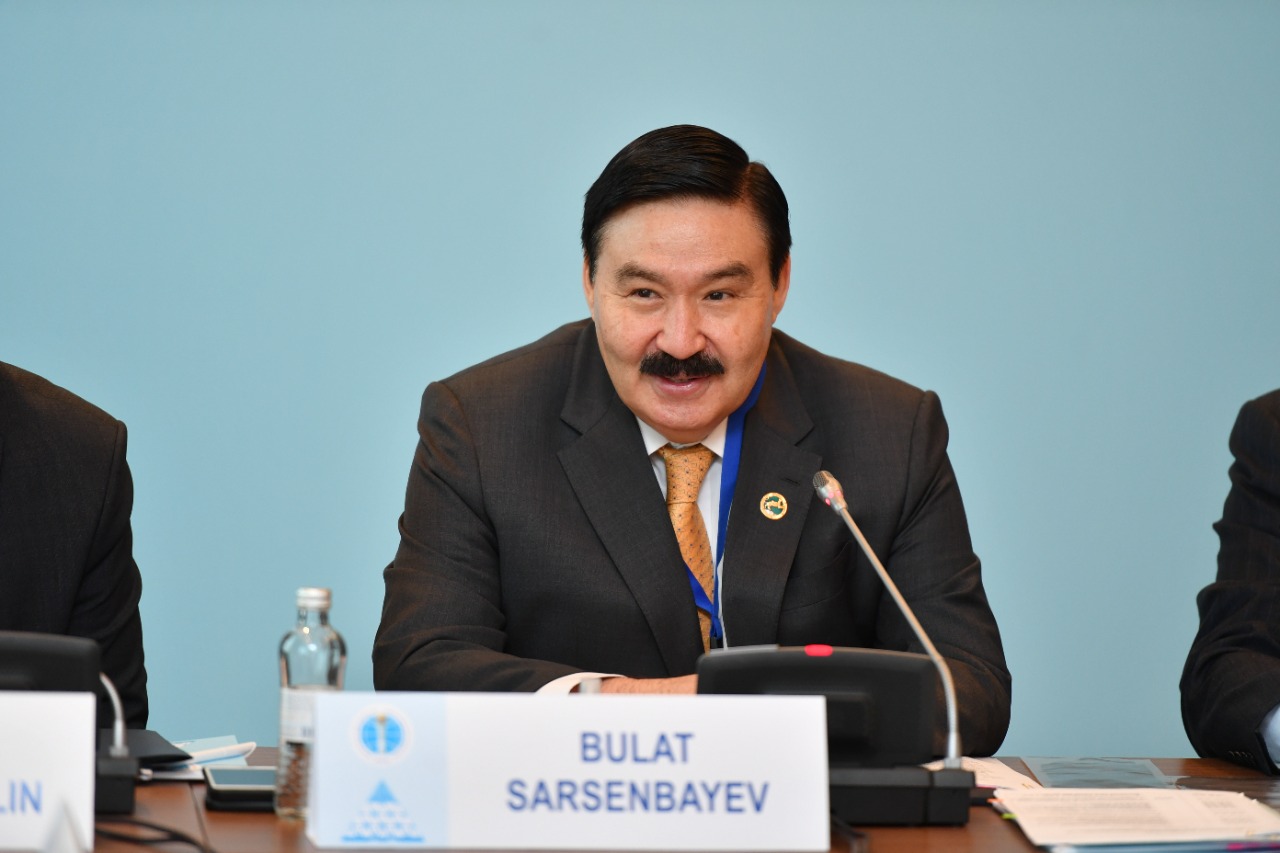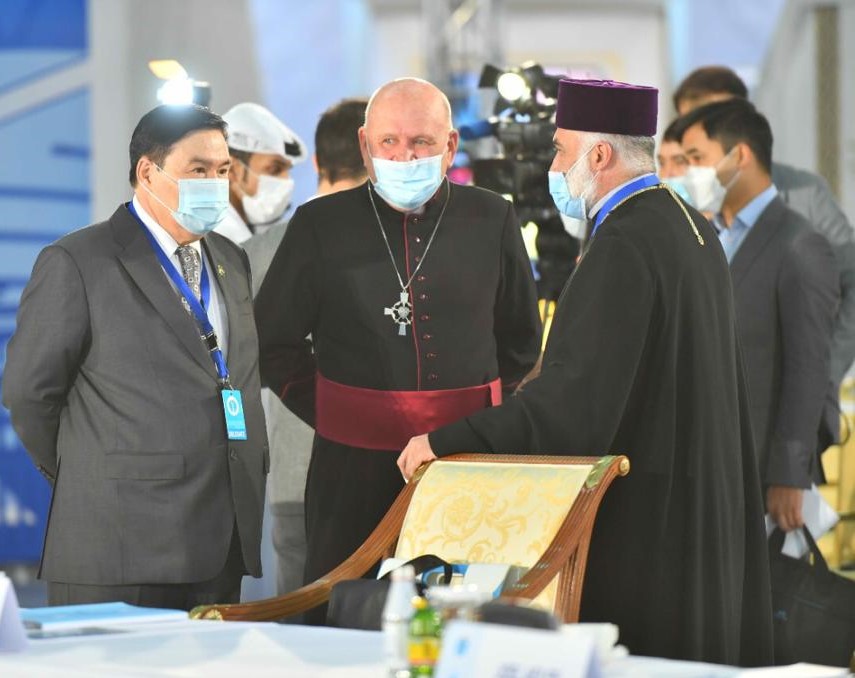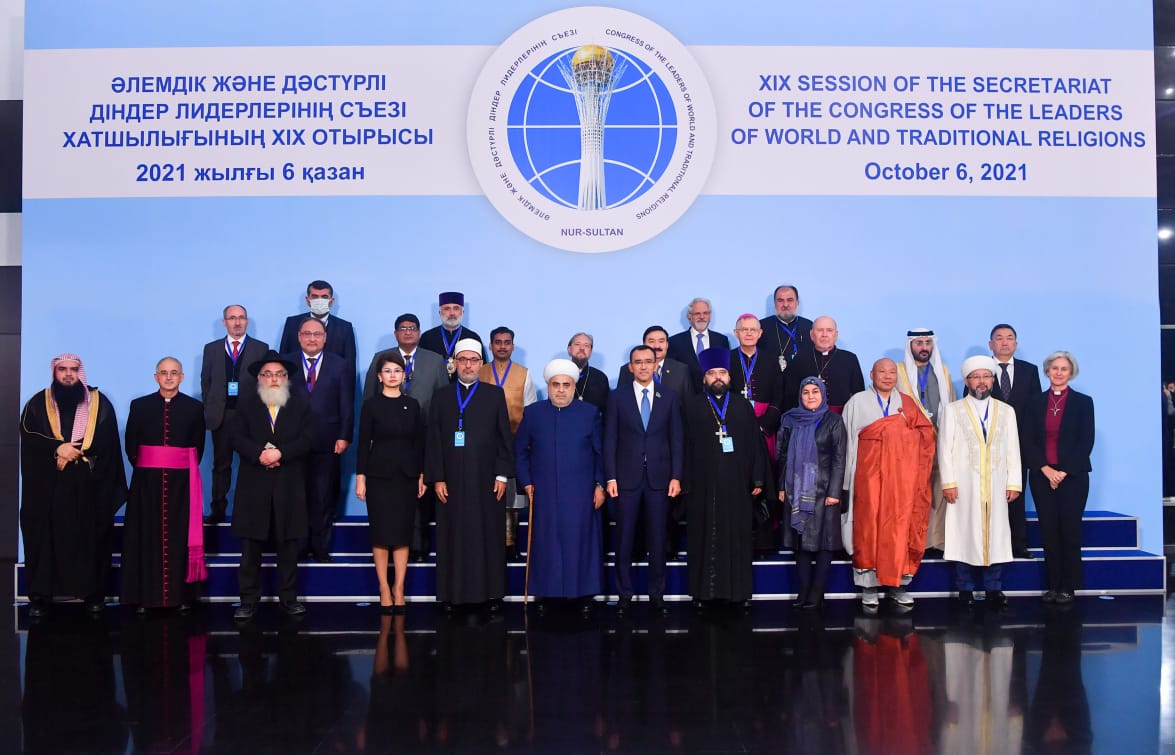NUR-SULTAN – Bulat Sarsenbayev, the Chair of Kazakhstan’s Nazarbayev Centre for Development of Interfaith and Intercivilizational Dialogue, introduced the agenda of the seventh Congress of Leaders of World and Traditional Religions.

Bulat Sarsenbayev is a Kazakh politician, diplomat and PhD in History. Photo credit: press service of Nazarbayev center.
The participants of the Congress, which will be held Sept. 14-15 in 2022 in Nur-Sultan, will discuss the role of leaders of world and traditional religions in the spiritual and social development of humankind in the post-pandemic period.
The issue includes four sections:
1. The role of religions in fostering spiritual and moral values in the modern world.
2. The role of education and religious enlightenment in enhancing respectful coexistence of religions and cultures, justice and peace.
3. The contribution of religious leaders and politicians to promoting global interreligious dialogue and peace, resisting extremism, radicalism and terrorism, especially based on religion.
4. The contribution of women to the well-being and sustainable development of society and the role of religious communities in supporting the social status of women.
Above these things, Sarsenbayev noted the 19th Session of the Secretariat of Congress, which was held on Oct. 6, had to be hosted in the capital in the previous year, but event organizers rescheduled the date due to the pandemic.

Bulat Sarsenbayev greets Yuri Novgorodov, Representative of the Lutheran World Federation, Archbishop of the Evangelical Lutheran Church in Kazakhstan, and Markos Oganesyan, Head of the Ukranian Diocese of the Armenian Apostolic Church, Bishop. Photo credit: press service of Nazarbayev center.
The session took place in Nur-Sultan chaired by Maulen Ashimbayev, Head of the Congress Secretariat and Chairperson of the Senate of the Kazakh Parliament, with the support of the Senate of the Parliament, Ministry of Information and Social Development and Ministry of Foreign Affairs.
The participants commended the contribution of Kazakhstan’s First President Nursultan Nazarbayev to ensuring the peaceful coexistence of all religions and confessions in multi-ethnic Kazakhstan and fostering interreligious and intercivilizational dialogue in the world. They also stressed the role of President Kasym-Jomart Tokayev in the effective development of strategy aimed at seeking solutions for the establishment of peace and harmony.
Sarsenbayev said that Kazakhstan was the first to hold an event of such scale on the global stage in offline format during the post-pandemic period. There were 35 participants from 20 countries, therefore organizers had to prepare carefully and take into account all the details.
“The first problem we faced was sanitary standards. We had to ensure the safety of all participants at all their meetings, as we were responsible for their health during their stay here. We got all participants tested for COVID-19, and sometimes even twice – when delegates came here and before they left. The second was delegates’ trip to Kazakhstan: direct flights were closed, that’s why some participants were getting here for a day or even more. There were nine people, who performed online as they could not arrive. In addition, the last thing was about technical equipment, which had to provide a high quality of video, volume, Internet connection and synchronic translation,” he said, explaining the challenges that the Congress organizers tackled.
He emphasized that Congress participants expressed their admiration by the end of the meeting as they appreciated all the effort that the Nazarbayev centre had made.

This year’s agenda included issues related to resolving global crises in view of new challenges and global opportunities. Photo credit: press service of Nazarbayev center.
This platform is unique, because for the first time politicians, religious leaders and supreme leaders can discuss global issues at a round table. Sarsenbayev stressed the importance of religious leaders’ participation as religion impacts the consciousness, mentality and values of people around the world.
“Religion helps us to understand life, determine our role in society and, as a consequence, figure out relationships with other people. Everyone is equal in religion, therefore it should bring people together,” he said about the role of religion and the necessity of cooperation between confessions.
The Congress, which was established after 9/11 in 2001, has been performing its functions for 18 years. There were 17 delegations at the first meeting and more than 200 participants from 70 countries next year. The Chair noted such progress indicates the growing authority of this platform – people are ready to spend their time meeting with other leaders, expressing their positions, discussing and coming to a common conclusion.
“This time participants decided to adopt the Final Document in the form of a Declaration. This document is the voice and position of the Congress, which contains everything people care about,” he added.
The preparation for the next Congress has already started as participants have agreed on its date, venue and issue.
“We are already forming lists of participants, because we should invite delegates in advance. We also have already been given a task to execute a project of Final Document,” Sarsenbayev concluded.
